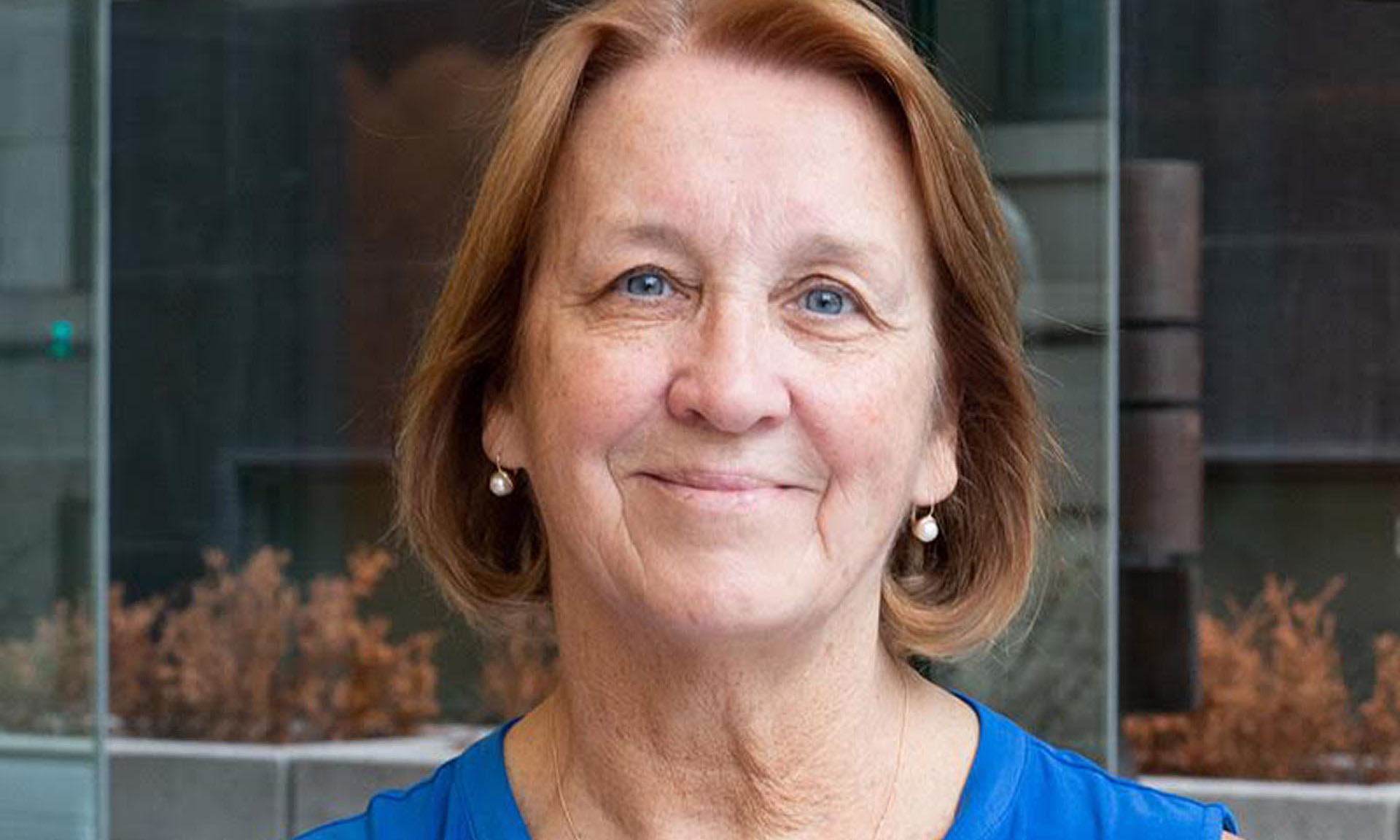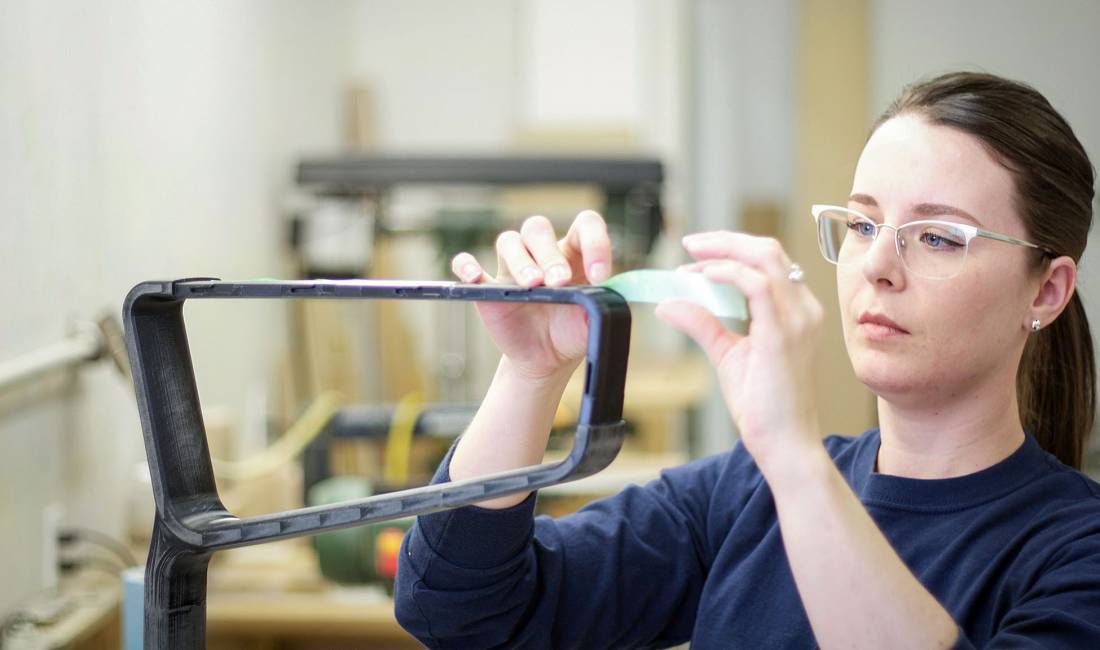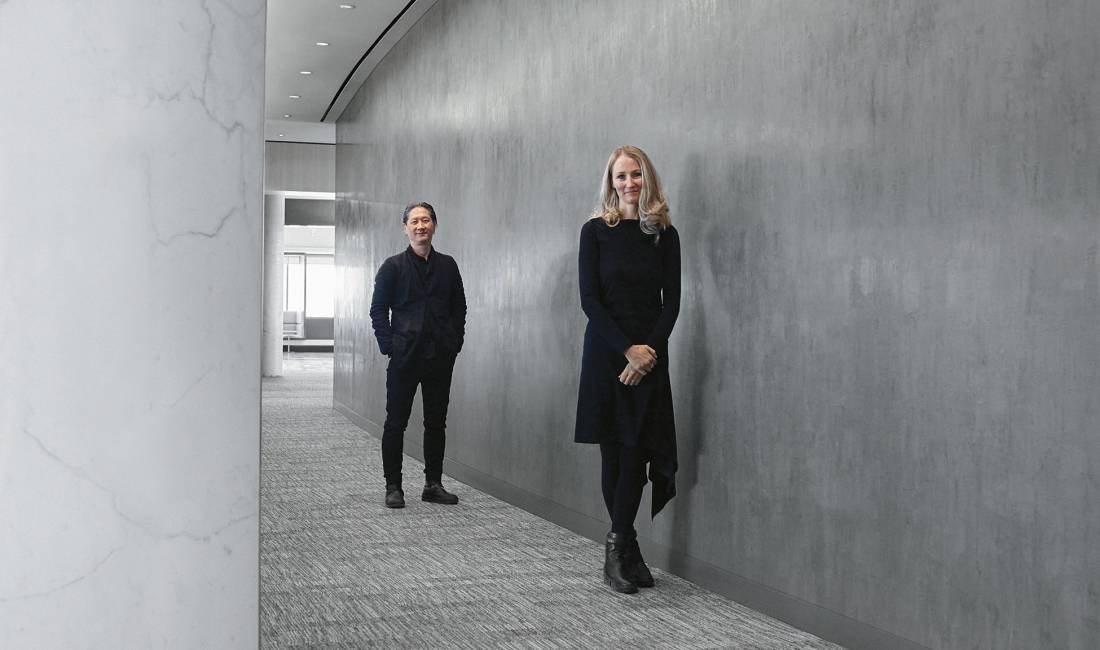Towards a Brighter Future: Innovations in Care Offer Dignity and Hope for Those With Dementia
Interview | August 01, 2024
With an estimated 750,000 Canadians1 and 6.7 million Americans2 suffering from Alzheimer’s and dementia, the need for innovative care strategies for those living with memory loss is critical.
We spoke with Madeline D’Arpino, the Supervisor at Circle of Care’s Adult Day Program for people living with dementia, about new approaches and hope for the future of care.
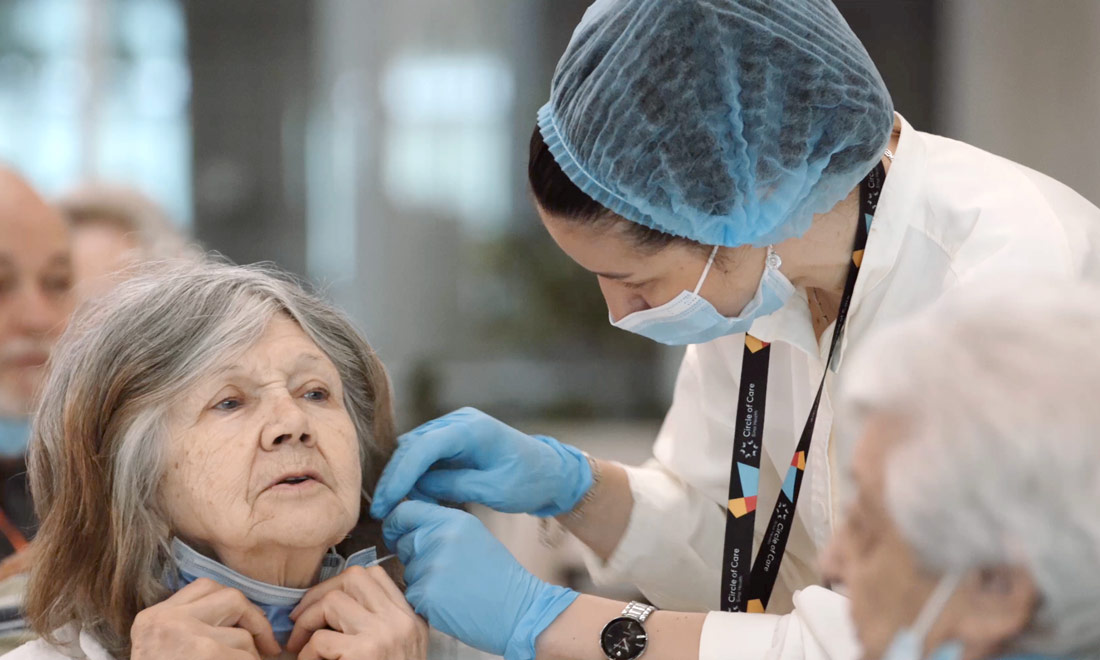
Q: What’s the mission of Circle of Care?
Circle of Care provides compassionate care supporting independence and quality of life for over 10,000 seniors and their caregivers each year. We make it easier for people to age in the comfort of their own homes and communities, which is where the vast majority of them want to be.
Our Adult Day Program provides stimulating, innovative programming while giving some respite to their caregivers. We are also involved in several research projects with local universities on the latest in dementia care. We are celebrating 15 years of providing dementia care, now in our new purpose-built bright 7,200-square foot space on Bathurst Street in Maple that allows a number of programs to take place at the same time, offering choices to our clients.
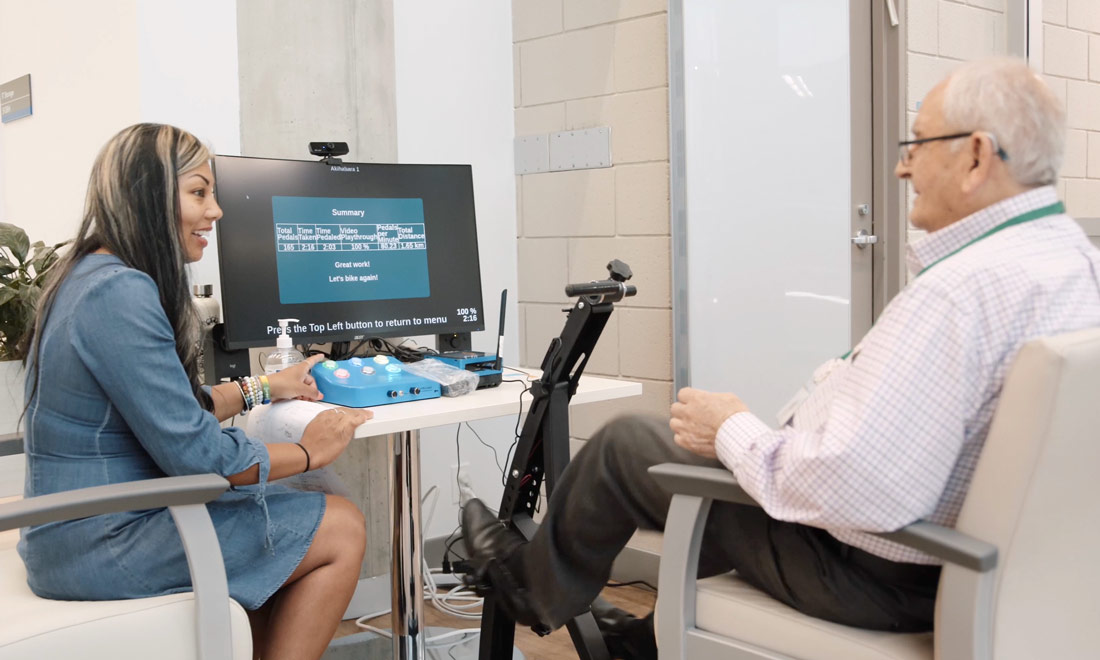
Q: How do you differ from other programs?
We integrate evidence-based programming and leading dementia care research to push the boundaries of dementia care. We continuously seek new opportunities to engage our clients as we know that research will guide our practice and effect the positive change needed to advance dementia care, not only in Ontario but in Canada.
"We ensure our staff know the client’s life story [...] so we can customize our interactions and groups to make a deeper connection. It’s the personal connection that makes them feel valued."
– Madeline D'Arpino
Q: What’s next for dementia care?
Supporting innovation is key to a better future for all seniors. We can’t afford to become complacent with the current status quo. It’s vital that we keep pushing forward to see what’s possible. Circle of Care has partnered with a researcher from the University of Toronto to introduce a new and innovative program called 2RaceWithMe. This is a seated exercise and social interaction program called Centivizer with a goal to simultaneously enhance physical activity and social participation that will measure the positive effects of exercise for seniors.
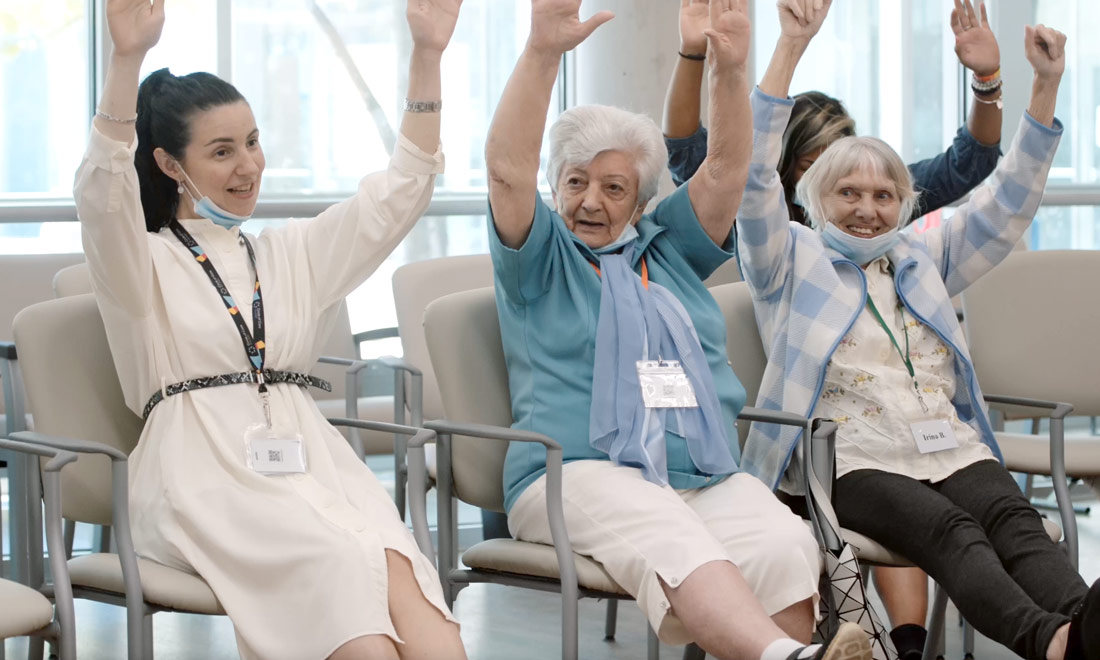
Q: How can exercise prevent or delay the decline in dementia?
Physical exercise has been shown to provide a protective effect against cognitive decline in aging generally, as well as Alzheimer’s disease. Physical and social activity is crucial for seniors, potentially slowing the progression of cognitive decline, and improving mood and overall well-being. As part of the research study, participants sit in front of a large monitor, where they choose a video from places all over the world and start pedaling on a stationary bike.
We use the videos to keep them motivated and engaged. This way instead of just being on a stationary bike, they are riding down the road in the village in Europe where they grew up or visiting Paris or Ireland. It evokes memory in addition to keeping them engaged in the exercise for longer periods.
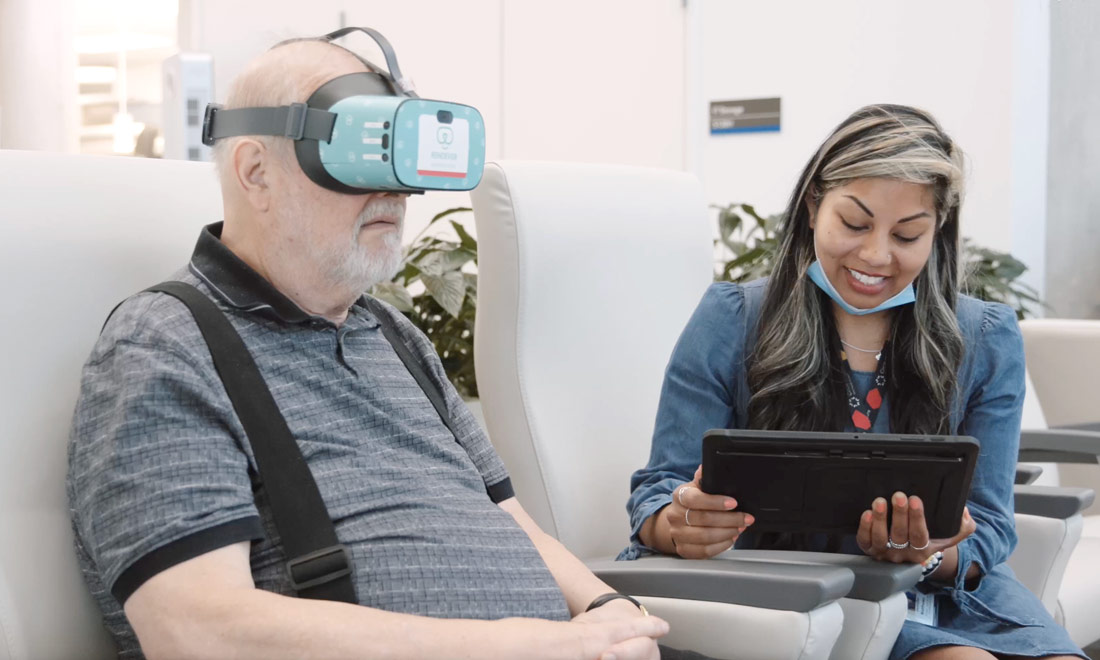
Q: What is the impact and possibilities for VR at Circle of Care?
We have been involved in a number of academic research projects involving virtual reality therapy (VRT), with clients and their loved ones using virtual reality (VR) headsets in their homes and our program.
VR headsets can be used to help reduce anxiety in our clients. We’ve had some wonderful results with VRT. Just the other day, a gentleman became very distressed, so we put a headset on him and showed him a video with babies. He has limited vocabulary but was able to articulate his emotions. As a result, he went from a state of distress to being happy and calm. It was truly amazing to witness the transformation.
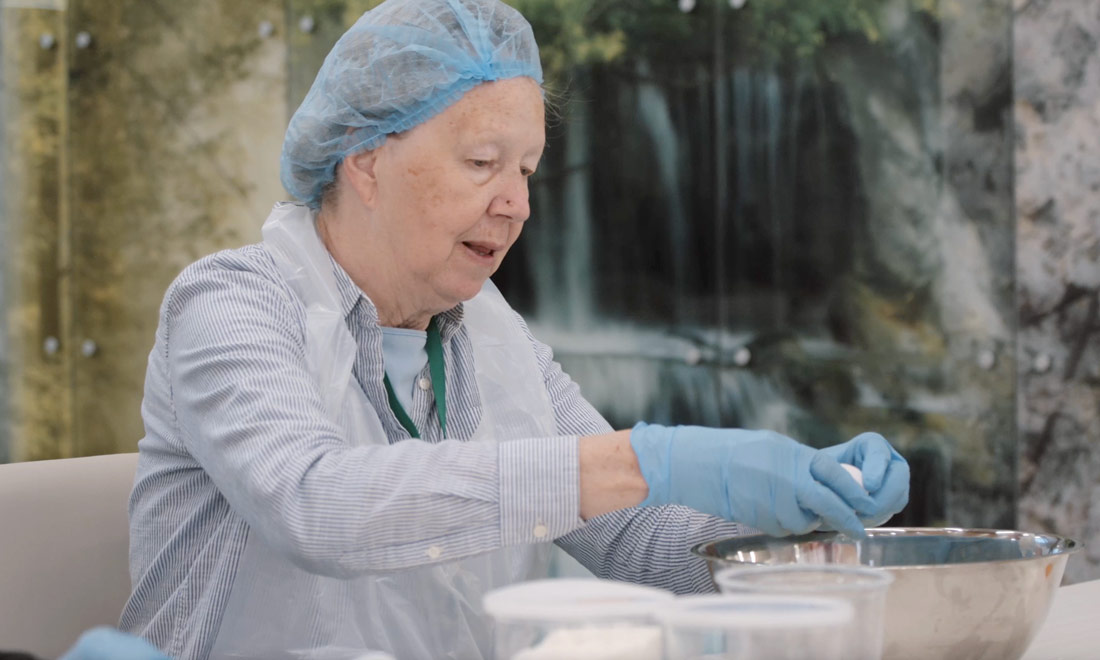
Q: What other ways are you engaging dementia clients?
The more opportunities we can offer our clients that engage them, the better they’ll feel. They need purpose. They need people. They need connections. That’s why we offer so much choice in our programming: cooking, yoga, Zumba, gardening, creative arts, and card games, to name a few. People have different life experiences, so we strive to find what’s meaningful for them. If they were a consumer of the arts, we make sure they have opportunities to immerse themselves in ballet or classical music via VR. If they were businesspeople, we ask about their achievements and encourage them to share memories in cognitive-based groups.
"People have different life experiences, so we strive to find what’s meaningful for them."
– Madeline D'Arpino
Q: How does this choice play into how the space is designed?
Our space has been purpose-built to support a range of activities and offer diverse moments of interaction and stimulation. Tables and chairs are specially designed for the elderly and support activities as well as comfortable areas for discussion groups, watching, listening to classical music or chatting with friends. Lounge chairs and recliners provide places for clients to relax or have a quiet moment.
Some clients benefit from activities that are tactile and engage the senses—being able to knead dough or dig in the soil. That’s why we have a full kitchen that enables people to bake and an area for gardening. The space is also wide open so that people can see what’s going on—whether to watch or participate—without feeling shut out, isolated or left out.
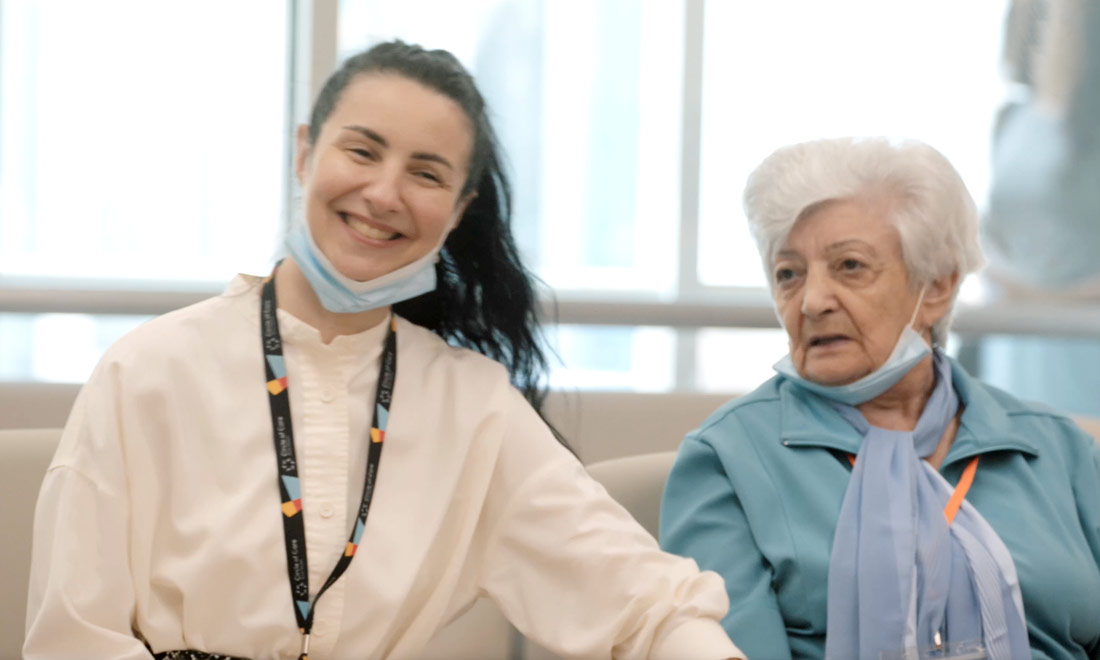
Q: What role does the community play in your approach to care?
We’re literally embedded inside our community—our day program is in the middle of the community center. We can see out and they can see in. We’re not isolated, closed in, or forgotten about. Because we’re inside a community center surrounded by schools, we have regular intergenerational programs. We’ve had children from the schools come dressed up as dinosaurs and princesses to sing for our clients or do creative arts projects. The children develop a relationship with our clients, and our clients reap the benefits of interacting with them.
Q: What’s the role of relationships with your clients and their caregivers?
I firmly believe that if our clients are at home looking at four walls, they’ll regress much quicker. The strongest aspect of our clients’ care and well-being is the quality of the relationships that develop with our staff and each other. We ensure our staff know the client’s life story—were they a farmer, a doctor, an avid gardener?—so we can customize our interactions and groups to make a deeper connection. It’s the personal connection that makes them feel valued. It also gives the caregivers peace of mind to know their loved one is not only well cared for, but that they also feel heard and valued when they’re with us.
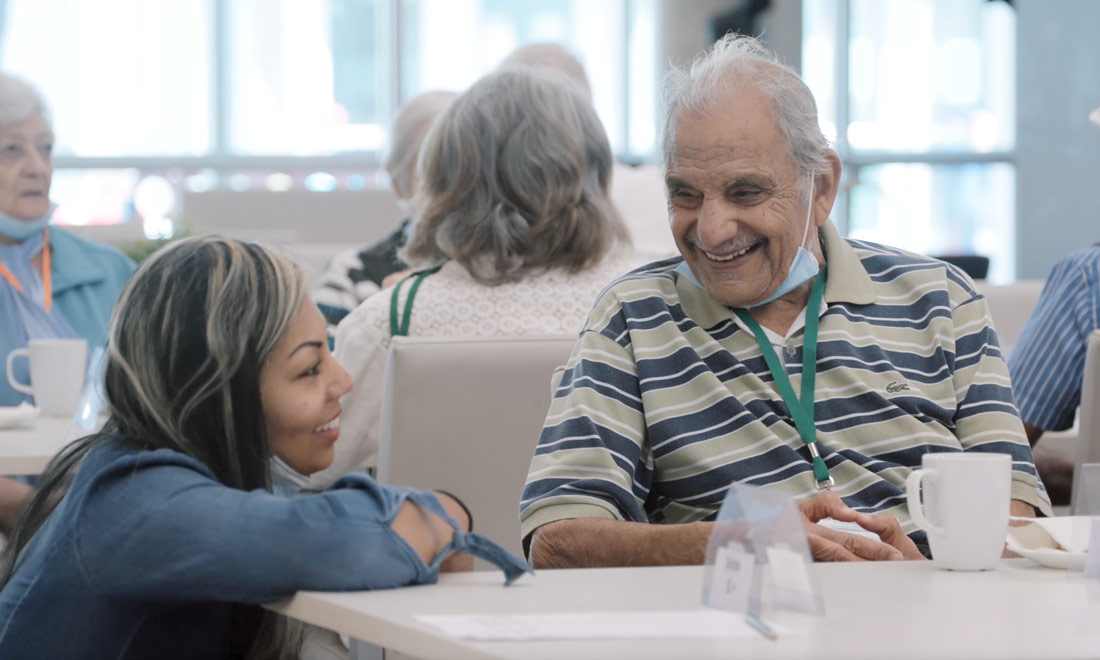
Q: How else can we help keep people at home and in the community longer?
We recognize the crucial role we play within our community and have recently added spa services that go beyond dementia care. Our beauty spa services include hair care, foot care, and showers—services that would’ve normally been done at home are now offered to our clients at our day program. This way we further reduce the burden on the caregivers and they know their loved ones are in the hands of our trusted staff members who they know and have a relationship with.
Q: What do you care about most?
Joy and engagement. There’s no reason why dementia clients and their families shouldn’t feel joy. I believe that is our greatest achievement. We have created a place where people come “to live.” This is a place full of life and engagement. Our clients enjoy coming to “The Club,” as some of them call it, and families tell us we are their lifeline, which enables them to cope so their loved ones can stay home and out of a long-term care or nursing home longer. Many of our clients stay with us until the day they are placed in long-term care, and of this, we are most proud.
To learn more about Circle of Care see the video.
1https://www.statcan.gc.ca/o1/en/plus/5374-alzheimers-awareness-month#
2https://pubmed.ncbi.nlm.nih.gov/36918389/#:~:text=The%20Special%20Report%20examines%20the,living%20with%20Alzheimer's%20dementia%20today.
ARCHITECT: ARK
PHOTOGRAPHY: Patrick St-Arnaud
WORKSPACE INTERIORS: Grand & Toy
Enjoy this article? Don't forget to share.


